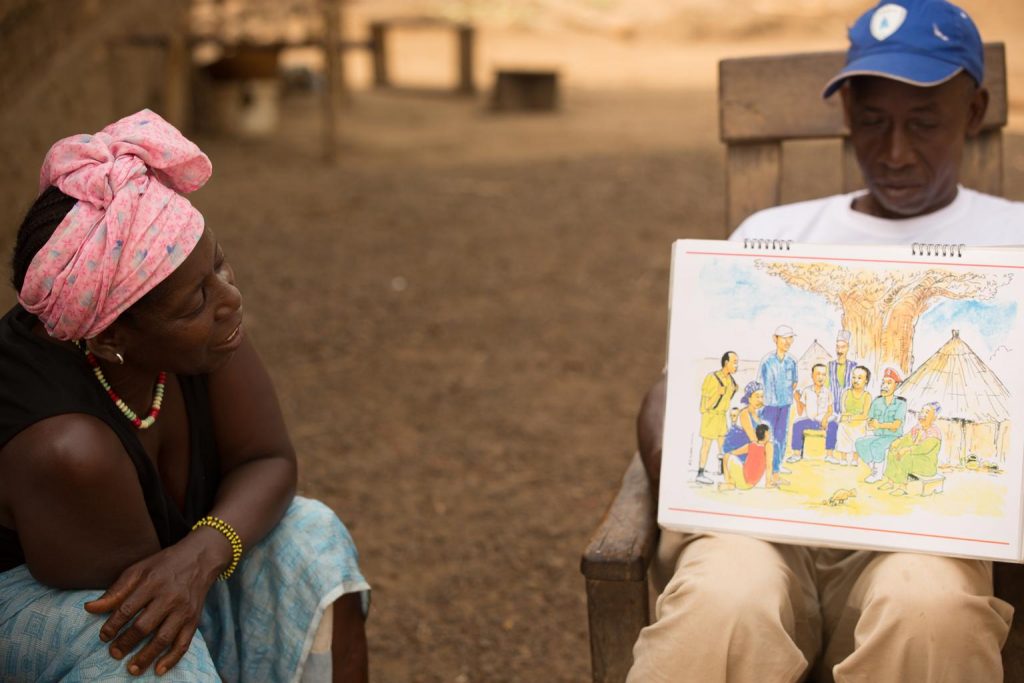This SSHAP Practical Approaches brief highlights key considerations when appraising health-seeking behaviours in the context of an epidemic outbreak. It provides guidance on the availability of relevant social science knowledge to adapt epidemic preparedness and response to the local context. Using the guidance will result in a mapping of crucial social science knowledge on health-seeking behaviour and reveal areas for additional primary data collection. Health-seeking behaviours vary widely across cultures, so some questions may be more relevant than others in different contexts. Additionally, the nature of the disease itself will make some questions more relevant than others; for example, the transmission pathways (contact, airborne, vector, etc.) of the pathogens will make particular issues more salient. As such, questions will need to be tailored to a specific context and disease.
Briefing
Tools
Rapid appraisal of key health-seeking behaviours in epidemics
Topics
Health
On 7 May, a woman looks at an illustration in a flip book held by a social mobilizer, in a community in Forécariah Prefecture. UNICEF-supported social mobilizers are conducting education awareness session on Ebola virus disease (EVD) and providing communities in the prefecture with information on key behaviours to protect themselves against the disease. UNICEF and partners are also conducting contact tracing to find, isolate and treat individuals who have been in close contact with persons infected with Ebola a critical part of the response to stop the viruss spread. A total of 18 confirmed cases of EVD 9 each in Guinea and Sierra Leone were reported in the week leading up to 3 May. All 9 new cases in Guinea were reported from Forécariah Prefecture.
On 9 May 2015, Guinea remains among countries in West Africa affected by the worst outbreak of Ebola virus disease (EVD) in history. The virus, which has killed more than 9,900 people since January 2014 and has taken a toll on almost every aspect of the lives of over 9 million children living in Ebola-affected areas. Thousands of children have contracted or have been killed by the disease, and more than 16,000 of them have lost one or both parents or their primary caregiver. The vast majority of these orphans are now being cared for by their communities. EVD has also disrupted essential services that were already fragile before the crisis, including critical health care and education. As of 3 May in Guinea, 3,167 people in the country have been confirmed with EVD and 1,971 people have been killed by the virus. Although only nine Ebola cases were reported in the country in the week leading up to 3 May the lowest weekly total this year EVD transmission persists. UNICEF remains at the forefront of efforts to respond to and help curtail the outbreak, and is the lead United Nations agency for social mobilization in the Ebola response. Working with the Government, communities and other partners, UNI
Related content
Briefing
Supporting the mpox response for people with diverse sexual orientation, gender identity and/or gender expression in contexts where their rights are restricted
This brief provides a socio-behavioural analysis of the vulnerabilities, risks and operational key considerations for working with people with diverse sexual orientation, gender identity and/or expression in the mpox response.
SSHAP
2025
Briefing
Key considerations: mpox in the Busia-Malaba border region linking Uganda and Kenya
This brief summarises how mpox is perceived and managed in the Busia-Malaba border region that links eastern Uganda and western Kenya.
Central and East Africa Hub
2025
Factsheet
Remote response to Ebola outbreak in DRC
The Social Science in Humanitarian Action Platform is supporting UNICEF, WHO, IFRC and other partners in the Democratic Republic of Congo to respond to the Ebola outbreak in Equateur Province. The Platform has four key streams of action: 1) Rapid…
Central and East Africa Hub
SSHAP
2018
Briefing
Cross-border dynamics between Burundi and Tanzania in the context of viral haemorrhagic fever outbreaks, 2025
This brief summarises key considerations regarding cross-border dynamics between Burundi and Tanzania in the context of viral haemorrhagic fever (VHF) outbreaks in Tanzania and Uganda.
Central and East Africa Hub
SSHAP
2025


